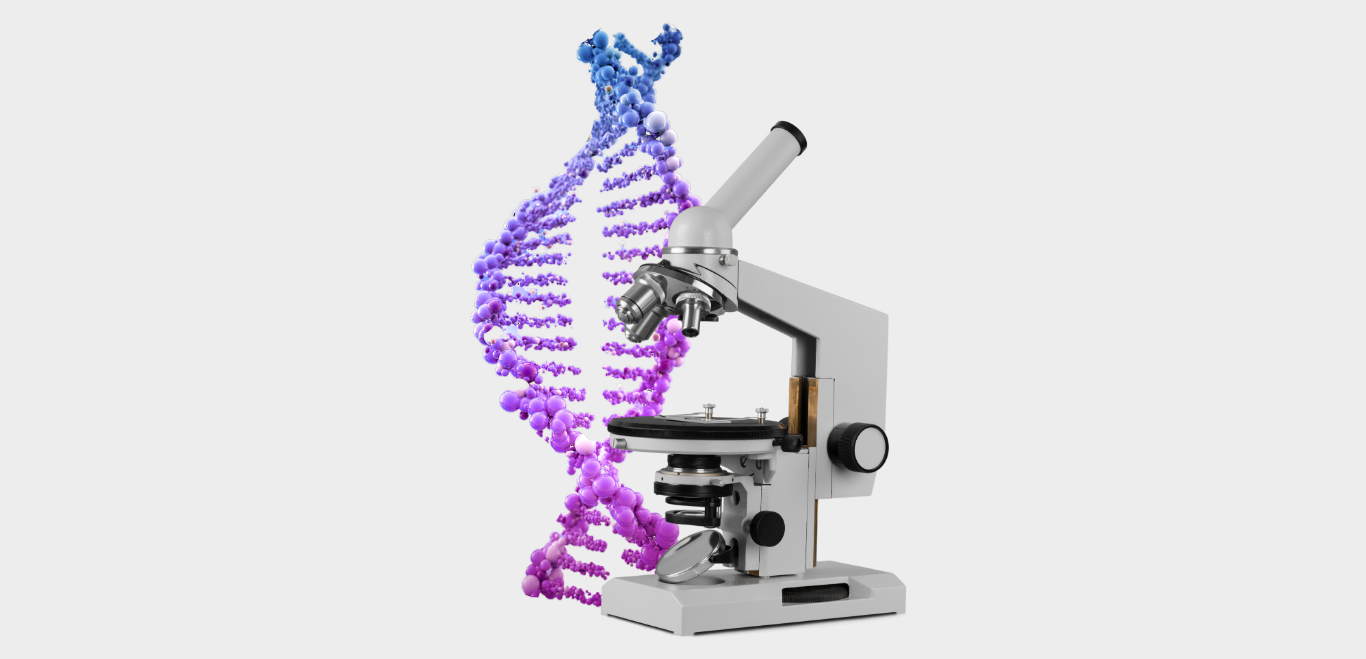What is Epigenetics?

Many people unfamiliar with the rapidly growing field of Epigenetics can deduce from its name that it is an area of science that has something to do with ones genetics, or DNA composition. And they're close! Genetics is the study of our DNA, and epi- is a Greek prefix for “above.”
Together, epigenetics describes molecular interactions immediately above the genome. It encompasses how the instructions of life, that are coded in our DNA, are actually put to use throughout our body. This regulation of our genes allows your body to pick and choose what instructions get used, what gets tweaked, and what gets skipped all together.

▐ The Difference Between Genetics & Epigenetics
Compared to genetics, epigenetic information is often more useful when it comes to understanding and treating health related matters. This is because epigenetics allows us to see the behavior of genetic material, not just what it contains. You can think of genetics like a lamp or light source, with our epigenetics being the switch that turns said light on, off, or somewhere in between (like a dimmer).
If you take a genetic-based test, your results will simply entail what your body is programmed to do. Results will also include whether or not you are carrier of harmful instructions, such as genes linked to illnesses like Alzheimer's Disease or Breast Cancer. These results won't change throughout your life.
However, if you take an epigenetic-based test, your results will show if, and to what extent, your body is actually executing those instruction. These results can change throughout your life, and can be strategically influenced by what you eat, how much sleep you get, your stress levels, your exposure to environmental toxins, your drinking and smoking habits, and much more.
Genetic Testing
|
Epigenetic Testing
|
|
|
Results can provide insights into health and disease risks. |
☑ |
☑ |
|
Results tell you what genes you are a carrier of. |
☑ |
|
|
Results will always be the same if repeated testing is performed. |
☑ |
|
|
Results tell you how your genes actually get put to use (or silenced), and how extensively. |
☑ |
|
|
Results will change based on age, as well as lifestyle, environmental, and medical factors if repeated testing is performed. |
☑ |
▐ Measuring Epigenetic Patterns
There are several ways that DNA regulation (epigenetics) can occur in the cells throughout your body, with one of the most prominent methods being DNA methylation. DNA methylation is a process where molecules (methyl molecules) attach to sections of your DNA. This process can be thought of as the "turning off" or dimming of the instructions at that gene location.
Broadly speaking, methylation is not considered good or bad as it pertains to your health and wellness because every gene has a specific function and might need to be turned off or turned on according to individual circumstances.
For instance, "turning off" oncogenes genes (genes linked to cancer) through more DNA methylation might be considered good for your health, while "turning off" tumor suppressor genes (genes which suppress cancer) might be considered bad.
Of the 28 million+ locations of the human genome, up to 80% are methylated to some degree. As we age, the extent of DNA methylation at these various spots change and form patterns. Researchers have been successfully able to link millions of these patterns to specific ages, and age-related health outcomes.
For example, if 2,000 patients show methylation on their DNA at the same place, and 1,999 of those patients develop Alzheimer’s, we can say with a high degree of certainty that evaluating methylation patterns on that particular section of DNA can help predict someone's risk of developing Alzheimer’s.

▐ Changing Your Epigenetics
There are many factors that contribute to epigenetic patterns and expression; some of which may come as a surprise! Things like exposure to social discrimination, having an emergency surgery, or even being born via cesarean section have researched-backed correlations with changes to your epigenome.
On the flip side, scientists have also seen improvements to unfavorable epigenetic patterns through lifestyle, environmental, and medical factors such as hormone therapies, caloric restriction, and mood stabilizers.
You can learn more about the hereditary, lifestyle, environmental, medical, and exposure influences that can contribute to, or change, your epigenetic expression here.
▐ Epigenetic Terms to Know
CpG Loci - A term used to describe specific locations on your DNA that are influenced by epigenetic factors.
Beta Values - A term used to describe the value/extent of how methylated (silenced/suppressed) a section of DNA is.
Methylation Risk Scores - A term used to describe the combined beta values at multiple DNA locations.
Hypomethylation - A term used to describe the process of a gene losing methylation, and becoming more fully expressed or visible through phenotypic traits.
Hypermethylation - A term used to describe the process of a gene gaining more methylation and becoming repressed or silenced.









